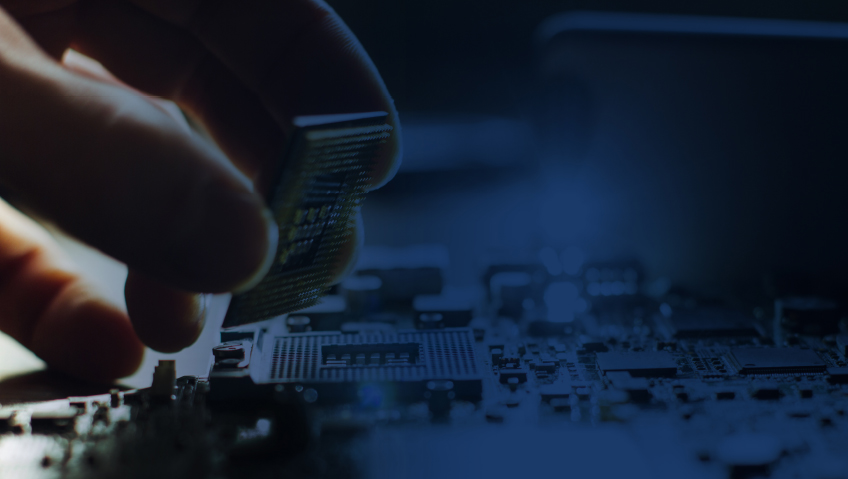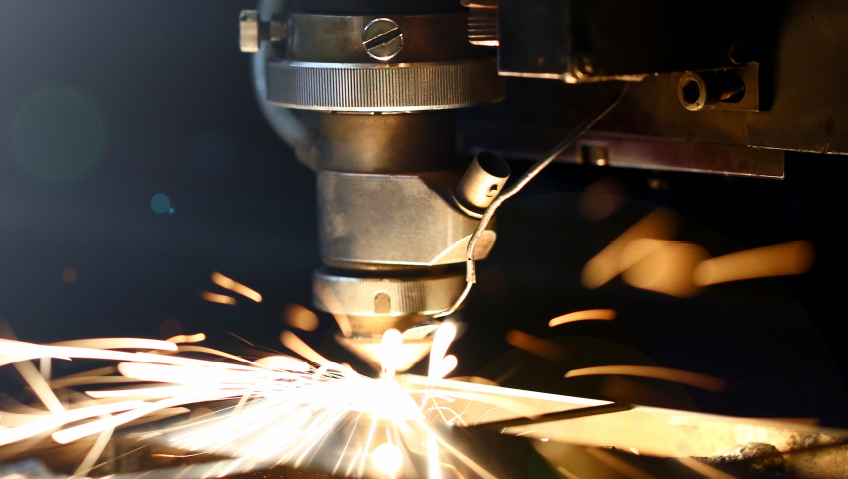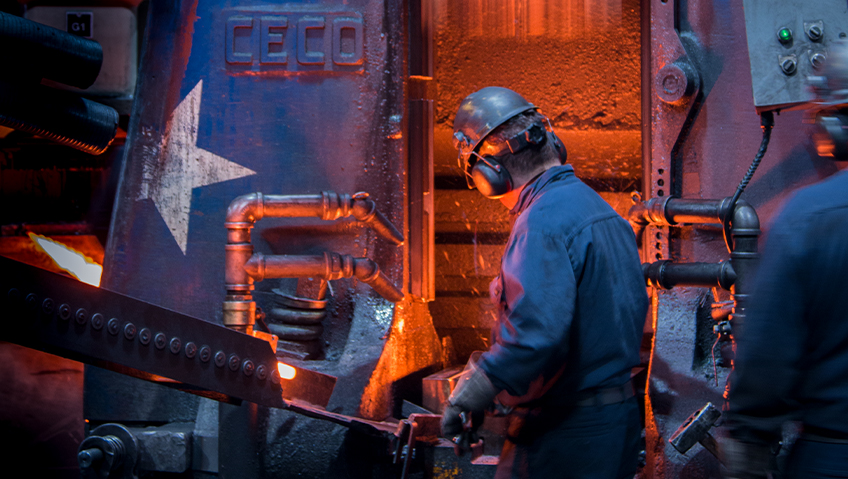Arshon Technology provides cost-effective electronic design services to customers in a wide range of industries around the world. As an end-to-end provider, this Ontario-based business handles everything from prototype design, testing, and validation all the way through to commercialization and mass production.
Manufacturing in Focus first featured Arshon Technology in 2020. We sat back down with founder and CEO Mazi Hosseini, M.A.Sci., P.Eng., to hear the latest on the launch of the company’s exciting new product, iotLINKS.
The Internet of Things, or IoT, is the control or monitoring of an object through the Internet, and Hosseini wants to make this technology—and its incredible potential—easily accessible and affordable to all.
“There is a huge gap between what is available and what is achievable,” he explains. “There are a lot of things available, but not everyone can actually get much out of it, [only] those people that have a lot of money and resources and time.” Hosseini has a passion for promoting the technology because, “that’s the future. Everywhere you look, that’s the future of business. Having that in mind forced me to come up with ideas to take [Arshon’s offerings in] that direction, to make a system that anyone can use.”
The idea for iotLINKS began to form in 2020, when Arshon Technology was investing heavily in its own in-office IoT technology. “I was going through a lot of engineering and development cost,” Hosseini remembers. “Anyone else, if they want to take advantage of Internet of Things, they have to spend that money and lose that time. So I thought, ‘how can I do this once [and replicate it] so that other companies do not spend this much investment to develop the whole system?’”
IoT systems consist of hardware, sensors, and gateways that take information from an object and connect it to the internet. In addition, “there are protocols for securely connecting that information to the Internet, to a cloud server,” Hosseini explains. “And on a cloud server you have a lot of programming, both to manage that data and store it or manipulate it—whatever is necessary for that data.” There also has to be a dashboard designed to display that data to the user. “So this is a multi-hundred thousand dollar project for anyone.” The cost alone puts the technology out of the reach of small businesses.
In addition to the cost, there are the technological requirements, which can be daunting even for companies in the technology business. “We have a team of engineers,” Hosseini points out. “We have manufacturing. We have software developers, cloud developers, app developers. But still, it’s a lot of investment for me. Now imagine a small company wants to take advantage of IoT. For them it’s impossible because they have to put in hundreds of thousands of dollars and then, because they don’t know the technology, they probably will still not really be able to put together this complex system.”
Indeed, many end users have little to no experience in this area of technology. “They don’t know how the cloud works,” Hosseini says. “So I said, ‘okay, the ideal solution would be a plug and play system that anyone, even someone ten years old, can use.’ That’s how I came up with iotLINKS.”
With iotLINKS, the end user simply buys a gateway from Arshon Technology such as Gatewat Alfa and registers the device into the cloud using an email address. After that, the device is ready to use. “You don’t need to do code writing,” Hosseini says. “You don’t need to know anything about the cloud. You don’t need to know pretty much anything on the hardware side… You just log onto the website and turn on and off the device or send and receive data to its ports.”
The application for iotLINKS is “basically limitless,” Hosseini says. For instance, a farmer can turn a pump ON and OFF on specific days to irrigate crops. Or a factory can run certain machines for a predetermined amount of time each day and collect data on production. The solar farm industry is a particularly good example of a customer eager to take full advantage of Arshon’s IoT technology. These businesses must keep their solar panels clean and well maintained. But solar farms are typically in remote locations, so maintenance crews must travel extensively, losing time and money in the process. A crew might “fly to another city then rent a truck and drive another 200 miles to get to a point they would like to inspect,” Hosseini says. “These farms are inaccessible and far from towns.”
IoT could radically change the way the industry operates. “Imagine one of these IoT gateways installed there,” he says. “It measures the performance of the system and transfers this information to the cloud. When they see a problem then they [know] to go. If they don’t see a problem, there is no point in travel.”
Furthermore, IoT can control the cleaning nozzles that spray water on the solar panels to keep them in good operating condition. If one of Arshon’s gateways is hooked up to the system, the end user can operate these cleaning nozzles from hundreds of miles away via an app on a smartphone. And, once the cleaning is complete, the app informs the end user that the panels are in good operating condition; the technician never needs to set foot onsite. “There are thousands of solar farms that could take advantage of this technology,” says Hosseini. Arshon Technology will have a first generation version of this application available by early 2022.
Certainly, Arshon Technology could sell its easy-to-use gateways at a high cost. But Hosseini chooses to keep that initial investment expense low for customers. “I can charge a good amount of money for the technology [but] I really like to minimize my profit to almost nothing because I like to make sure this hardware is available to anyone at the lowest possible cost,” Hosseini says. “My intention is not making money off selling the hardware, so I have two other revenue streams.”
The first revenue stream is through data storage. Users pay Arshon Technology to secure their data on the cloud. “This could be a dollar per month, maybe thirty dollars per month,” Hosseini says. “It depends on what kind of features and services they use for the website and it also depends on how many units they have.”
A second ongoing revenue stream is through dashboard design and maintenance. The dashboard is where end users view their data. Some clients only need a simple overview, available on a standard dashboard, but other end users need a more complex display. Arshon Technology specially designs dashboards with unique needs in mind. For instance, a seller who sells to dealers, directly to customers, and through a website would need a dashboard with multiple viewing options: one that shows data pertaining to their dealer customers, another that shows data pertaining to their direct customers, and another that displays website sales data. “This is a $200,000 dashboard development,” Hosseini says. “They are using our basic hardware and tools and iotLINKS platform, but because they want super complicated access to the data, and that data is dedicated to them, and the way they like to manipulate and see the data is totally different, we have to develop a custom dashboard for them.”
iotLINKS and the company’s first Gateway, which is Gateway Alfa, are expected to be available by the end of 2021—and the current launch is only the beginning. “We are quite excited,” Hosseini says. “I think 2022 will be the start of a great thing for us. I’m getting a lot of good feedback so far from a lot of customers and a lot of potential users.”






